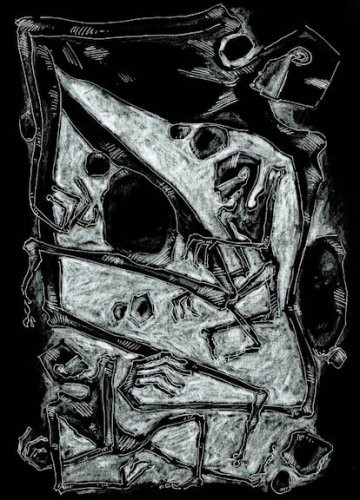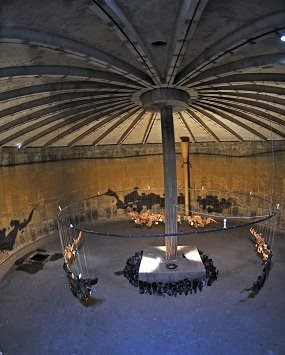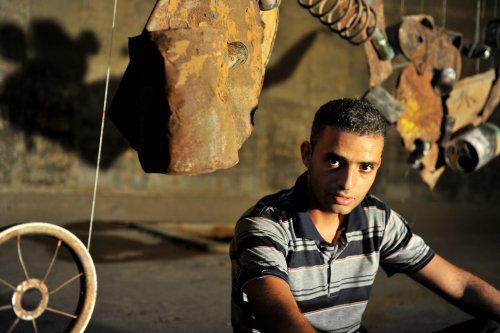Abdullah al-Rozzi was born in Gaza in 1982, and gifted with artistic talent, he completed his studies in the field of visual arts at the University of Al-Aqsa in Gaza in 2005. His works have been shown in several art exhibitions inside the Gaza Strip and the West Bank as well as abroad. Abdullah is currently working in a public transport department in Gaza to make both ends meet, and cannot devote himself to art.
Milena Rampoldi (MR): What does Palestinian art mean to you?
Abdullah al-Rozzi (AR): Palestinian art is tantamount to the identity, heritage, and culture of Palestinians and has become a means of defence for an indigenous but powerless people desperately endeavouring to hold on to their land, their traditions, and their values. Art can transcend the barriers of silence and the artist’s imagination allows for the expression of ideas and opinions that go beyond accepted standards and political correctness.

MR: How important is it to express Palestinian suffering in art?
AR: We Palestinians – continuously and brutally occupied, blockaded, persecuted, robbed, imprisoned, tortured, and murdered – lack any kind of military or other recourse for the defence of our existence as a people, and consequently have no alternative other than to resort to the strength of our culture and art in order to express our aspirations for freedom and justice. Such cultural arts are promoted through artistic activities and national events with the support and involvement of Palestinians from many walks of life including prisoners and refugees.

MR: You say that the art comes from the womb of suffering. Please explain.
AR: Despite the odds against them, including the injustice and pressures of military occupation; the ever present threat of house raids, arrest, torture, and imprisonment; the periodic military invasions with unrelenting bombardments that cause death and destruction; and the toleration of Israel’s crimes against humanity by the rest of the world, Palestinian artists nonetheless manage to find the materials, the space, and the time to produce expressive works of art.


MR: What does occupation mean for the Palestinian artists? Which are the hardest aspects of Zionist occupation?
AR: The nightmare of occupation with its persistent persecution serves not only to undermine the hopes and dreams of Palestinian artists, but also precludes all sense of normality by denying the right to free of movement, freedom of speech, freedom to work, freedom to rebuild a shattered infrastructure, and freedom to worship. Such denial of human rights are illegally enforced by abusive and demeaning military checkpoints, Apartheid fences and walls with watchtowers that appropriate Palestinian land and divide Palestinian families, and the deliberate Israeli displacement of Palestinian families.

MR: How can artists express political ideas?
AR: Palestinian artists, who like other people, aspire to express the humanity and justice of their communities, are prevented from doing so because of the restrictions imposed by the occupation and its political ramifications. Their freedom of expression is restricted by the threat of possible loss of freedom or even life.

MR: For me art is a universal language to promote peace. What do you think about it?
AR: It is hoped that such expressive art will help to build bridges between different peoples and improve the chances for world peace and security.


*Dr phil Miena Rampoldi is founder and president of ProMosaik, a non-governmental organization for intercultural and interreligious dialogue based in Berlin. She works as author and translator. She is convinced that languages can essentially contribute to the success of intercultural and interreligious dialogue and that book translations can contribute to build bridges between cultures and religions. She has also started her post-doctoral studies at the University of Wroclaw about Women and Politics in Islam. (INPS | 30 December 2015)
Send your comments or questions to contact@international-press-syndicate.net

